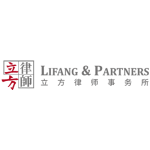The Fujian High People’s Court issued a final judgment in an important lawsuit to do with unfair competition.
The case was brought by Emerson Electric Co. (Plaintiff) against Xiamen Hemeiquan Drinking Water Equipment Limited (Defendant 1) and Xiamen Haina Baichuan Network Technology Limited (Defendant 2), as well as the legal representative of the above two defendants (Defendant 3), and the trademark agency of the above two defendants (Defendant 4).
The court held that the Defendants' acts of registration of trademarks constituted unfair competition, and ordered the Defendants to stop applying and registering identical or similar trademarks in the case. The court awarded the plaintiff damages totalling RMB 1,600,000 ($250,000).
Background to the case
Beginning in 1994, the Plaintiff had registered the trademarks "In-Sink-Erator" and "爱适易" [the Chinese version of In-Sink-Erator] on various goods classes. These trademarks are famous in food waste disposers and instant hot water purification systems in China.
Between 2010 and 2019, Defendants 1 and 2 applied and registered trademarks identical or similar to the above trademarks of the Plaintiff on multiple classes. The Plaintiff filed oppositions and invalidations against these trademarks.
During proceedings, Defendants 1 and 2 were recognised by the China National Intellectual Property Administration (CNIPA) and the court as engaging in trademark hoarding. The Plaintiff then filed a complaint to the court, claiming that the Defendants' acts of trademark registrations were malicious and constituted unfair competition.
The court affirmed that Defendants 1 and 2 had registered multiple identical or similar trademarks to those of the Plaintiff's "In-Sink-Erator" trademarks, in multiple classes, which obviously exceeded the needs of normal business operations, therefore constituting hoarding trademarks. The Plaintiff had to take actions such as trademark opposition and invalidation, and filed administrative litigations against these trademarks to stop the trademark registrations.
The Defendants’ mass trademark registrations resulted in the Plaintiff’s significant expenses to defend its rights, which also interfered with the Plaintiff's normal business operations. The two Defendants’ acts of hoarding trademarks were clearly malicious, and caused prejudice of the Plaintiff, thus constituting an act of unfair competition.
Liabilities of other defendants
Regarding the liabilities of the other defendants, the court held that the legal representative (Defendant 3) was also the holding shareholder and general manager of the two Defendants. The court ruled that, as the legal representative was controlling the two Defendants, was fully aware of the acts of unfair competition by them, and was collaborating with them, this constituted joint infringement.
The trademark agency (Defendant 4) was also aware that the acts by Defendants 1 and 2 of hoarding trademarks were in violation of the Trademark Law. However, the agency continued to represent the Defendants for the registration of almost all the hoarded trademarks. This constituted an act of assisting infringement, meaning that the agency undertook joint liability.
The court assessed that, although the hoarded trademarks are all void, it is not necessary for the court to order the Defendants to stop infringement. Considering that the cost of a trademark application is quite low, and that the Plaintiff would bear substantial costs to defend against the Defendants, the court held that it is necessary to order the Defendants to stop any trademark applications that are identical or similar to "In-Sink-Erator".
The court further confirmed that, after a consideration of the costs and losses of the Plaintiff due to the infringement, as well as the gains of the Defendants from the infringement, it would apply judicial damages, totalling RMB 1,600,000 ($250,000).
Importance of the judgment
Previously, malicious trademarks could be rejected or invalidated, but the trademark owners suffered no more than losing the trademarks. This was not enough to deter the trademark squatters from trademark hoarding.
This case is the first in China to find that trademark hoarding constitutes unfair competition, and that the defendants are liable for permanent injunction and damages. This judgment therefore substantially increases the legal risks and costs of trademark squatters.
The case also affirms the liabilities of the actual controller of the infringers (the legal representative, Defendant 3) and the trademark agency (Defendant 4) in acts of trademark hoarding. This should further deter legal representatives and the trademark agency from collaborating in the hoarding of trademarks.
This judgment is a milestone in the efforts to stop trademark squatting in China, and the deterring effect of the ruling is encouraging for authentic trademark owners who want to defend their rights.
Yan Zhang
Partner, Lifang & Partners











